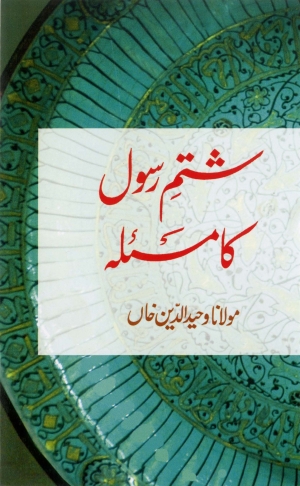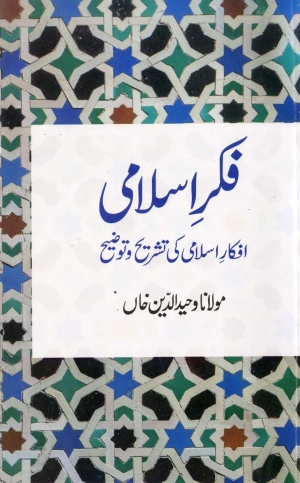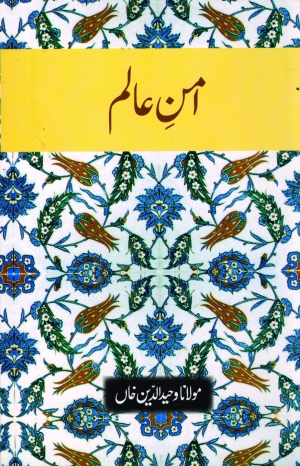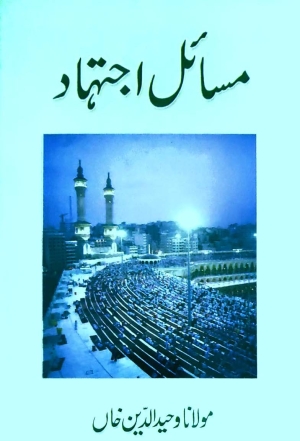It is generally held that Islam prescribes capital punishment for those who commit blasphemy, that is, using abusive language against the Prophet of Islam. However, this is entirely untrue. According to Islam, blasphemy is simply a misuse of freedom and not a cognisable offence; the blasphemer is not liable to incur legal punishment. This kind of law has no basis in Islamic scriptures.
If someone uses abusive language against the Prophet, Muslims must take it as a case of misunderstanding and then try to remove this misunderstanding in peaceful ways. They must do so by engaging in discussion or by providing the ‘blasphemer’ with Islamic literature that gives the actual image of the Prophet of Islam. This notion of killing in the name of blasphemy is itself haram or forbidden.
As a part of His creation plan, God has granted freedom to people, and no one can take away this freedom. While exercising one’s freedom of expression, the only condition should be that one does not resort to violence.
The Arabic equivalent of blasphemy is shatm. Blasphemy finds no mention in the dictionary of Islam. It is only an innovated term of later period. According to the Hadith (saying of the Prophet of Islam), any innovation in the religion of Islam is liable to be rejected. (Sahih Muslim, Hadith No. 1718) The authentic sources of Islam are only two: the Quran and the Hadith. No Mufti or legislature has the right to add any law as a divine law to the Islamic Shariah (Jurisprudence).
Featured Articles
Featured Videos
FAQs
Blasphemy finds no mention in the dictionary of Islam. It is only an innovated term. The Arabic equivalent of blasphemy is shatm. According to a saying of the Prophet of Islam, any innovation in the religion of Islam is liable to be rejected. The authentic sources of Islam are only two: the Quran and the Hadith. No Mufti or legislature has the right to add any law to the Islamic Shariah (Jurisprudence).
The Prophet of Islam started his mission in 610 CE in Makkah and he died in 632 CE in Madinah. During these twenty-two years, there were some people both in Makkah and Madinah who used abusive language against the Prophet of Islam. But the Prophet never said they should be killed. He opted only for two kinds of response: either he avoided the issue or he asked some of his Companions to meet them and remove their misunderstanding.
The Quran does not ask others to refrain from using abusive language against Islam; it enjoins Muslims not to use abusive language against other religions.
Looking at the early history of Islam, one can say that present-day Muslims must adopt this prophetic model. Muslims must either ignore such events or they must respond to them in a peaceful manner, that is, statement for a statement, a book for a book. There is no other option for Muslims.
According to the Creation Plan of God, everyone is free. Freedom is everyone’s birthright, so no one can abolish anyone’s freedom. People are free to use their freedom as they please, if you disagree with the point of view of your fellow beings, you can express your views in a rational manner; you must try to address their minds. Guns and bombs are no options for Muslims.
Killing in the name of blasphemy is the Islamisation of something that has nothing to do with Islam. It is strange that no Muslim of repute speaks against this un-Islamic act. Almost all Muslims are silent on this issue. This silence is highly objectionable as there is a Hadith, that if one sees an evil and fails to speak out against it, such a person is as a dumb Satan.
If one takes the act of blasphemy as a difference of opinion, then it will be to one’s advantage. Difference of opinion invites discussion, which gives a good opportunity to remove misconceptions. Moreover, according to the Quran, differences create an opportunity to turn an enemy into a friend.
Islam emphasizes a rational approach. The Quran does not ask others to refrain from using abusive language against Islam; it enjoins Muslims not to use abusive language against other religions. Islam tries to root out the cause of blasphemy rather than command people to kill those who commit blasphemy. Save others from your evil, to be saved from the evil of others.
Source: Spirit of Islam April 2017
Islam greatly believes in freedom of expression. As such blasphemy in Islam is a subject of intellectual discussion rather than a subject of physical punishment.
The concept of blasphemy is completely alien to the original teachings of Islam. Before the advent of Islam, difference of belief was also a punishable act. They used to punish on matters of belief just as on matters of social crime. This old practice is called religious persecution in history. Islam abolished this practice. The Prophet of Islam declared that personal belief is a subject of discussion and exchange rather than of legal punishment.
If you go through the Quran and Hadith, the only two authentic sources of Islam, you will find that there is not a single Quranic verse or Hadith that gives this kind of injunction which says: Kill the person who commits blasphemy against the Prophet.
The Quran tells us that since ancient times God has sent prophets in succession to every town and every community. It says, moreover, that the contemporaries of all of these prophets adopted a negative attitude toward them. There are more than two hundred verses in the Quran that reveal that the contemporaries of the prophets repeatedly perpetrated the same act which is now called ‘blasphemy or abuse of the Prophet’ or ‘using abusive language about the Prophet’. Prophets throughout the ages have been mocked and abused by their contemporaries (36: 30); some of the epithets cited in the Quran being “a liar” (40: 24), “possessed” (15: 6), “a fabricator” (16: 101), “a foolish man” (7: 66). The Quran mentions these words of abuse used by prophets’ contemporaries but nowhere does the Quran prescribe the punishment of lashes, or death or any other physical punishment.
The Prophet of Islam declared that personal belief is a subject of discussion and exchange rather than of legal punishment.
This clearly shows that ‘abuse of the Prophet’ is not a subject of punishment, but rather a subject of peaceful discussion. That is, one who is guilty of abusing the Prophet should not have corporal punishment meted out to him: “He should rather be given sound arguments in order that his mind may be addressed. In other words, peaceful persuasion should be used to reform the person concerned rather than trying to punish him.”
Those who adopt a negative stance towards the Prophet will be judged by God, who knows the innermost recesses of their hearts. The responsibility of the believers is to observe the policy of avoidance, and with a well-wishing attitude, convey the message of God to them in such a manner that their minds might be properly addressed.
Source: Spirit of Islam April 2017
Islam lays great emphasis on freedom of expression. Blasphemy in Islam is a subject of intellectual discussion rather than a subject of physical punishment.
Before the advent of Islam, holding beliefs different from that of the establishment was considered a punishable act. People used to be punished on matters of belief just as they would be if they committed a social crime. This old practice of religious persecution was abolished by Islam. In Islam, the culture of dissent and freedom of expression is given utmost importance. The concept of blasphemy, therefore, is completely alien to the original teachings of Islam.
Some Muslims advocate the theory that freedom of expression is good, but that no one has the right to hurt the religious sentiments of others. This theory is quite illogical. Freedom is not a self-acquired right. It is God, who, because of His scheme of putting man to the test, has given him total freedom. Then the modern secular concept of freedom is that everyone is free, provided he does not inflict physical harm on others. In such a situation, the above kind of demand by Muslims is tantamount to abolishing two things: first, it abolished the divine scheme of granting freedom to everyone, and second, it abolishes the modern secular norm. Muslims’ demand that others should not have the freedom to hurt their religious sentiment is thus invalid, as it can never be achieved.
Source: Spirit of Islam October 2018
The Quran tells us that the Prophet’s contemporaries, misusing their freedom, spoke abusive words against him. Some of them called the Prophet a ‘man possessed’ (15:6), a ‘liar’ (23:24), and ‘a forgerer’ (25:4). The Quran has referred to these incidents but it does not give the command to kill those who abuse the Prophet. On the contrary, the Quran tells us that the Prophet and his companions either ignored their abuses or they countered them with argument, and nothing more.
In the era when the Prophet of Islam began to spread the divine truth, the Makkans worshipped idols. Therefore, the majority of the people reacted strongly, heaping abuses on him. For instance, one poet wrote a poem condemning him, one line of which was: “You are a condemned person, we reject you.”
This poet once came to see the Prophet and uttered these words, but the Prophet was not enraged. He did not ask his companions to beat him or kill him. On the contrary, his reaction was, as recorded by his earliest biographer, Ibn Ishaaq, totally different. Ibn Ishaaq writes: ‘The Quraysh had named him "condemned" (Muzammam) and they abused him by this name. The Prophet would say to counter it: “Aren’t you surprised how God has saved me from the abuses of the Quraysh? For they abuse ‘Muzammam,’ while I am Muhammad.”’
The environment of freedom of expression is extremely important for Islam. Open, and frank discussion takes place in such an environment. One needs to meet intellectual challenges and reflect deeply. Only then will the minds of people open up. The environment of freedom of expression prevents intellectual stagnation and produces creative thinking. The importance of freedom of expression is so great that no curb should be placed on it. If someone misuses his freedom, he should be countered with argument. Protest or legal punishment is no solution.
Source: The True Face of Islam













